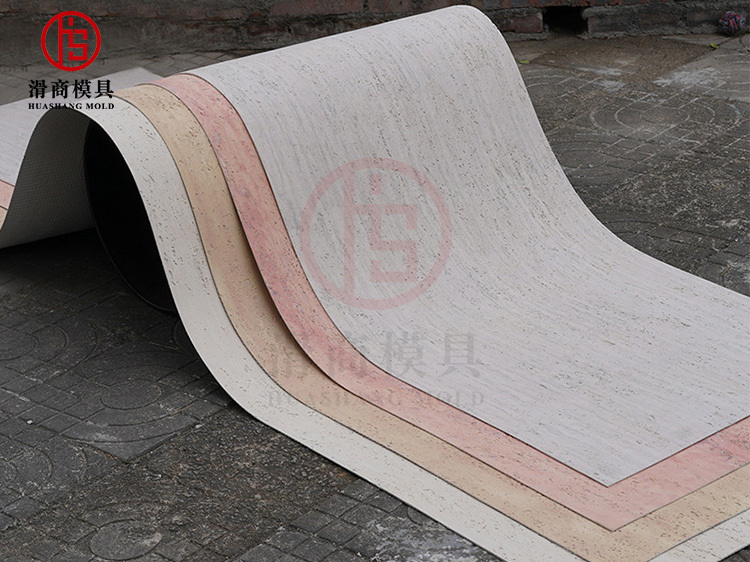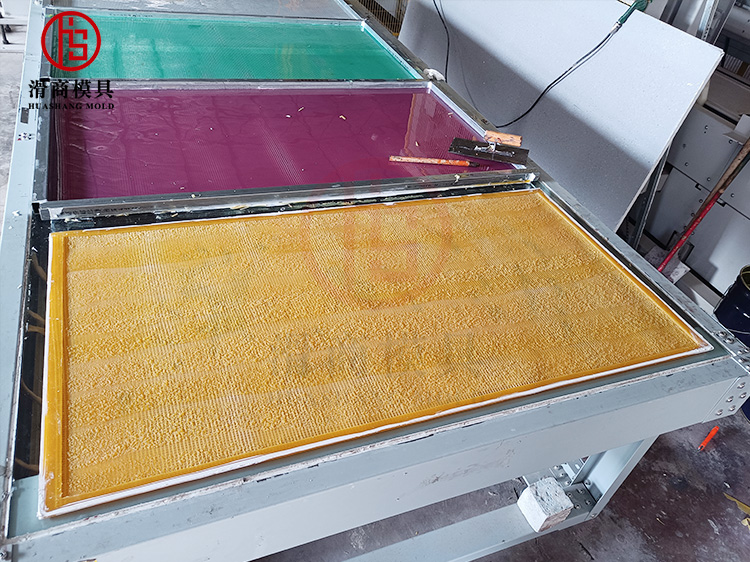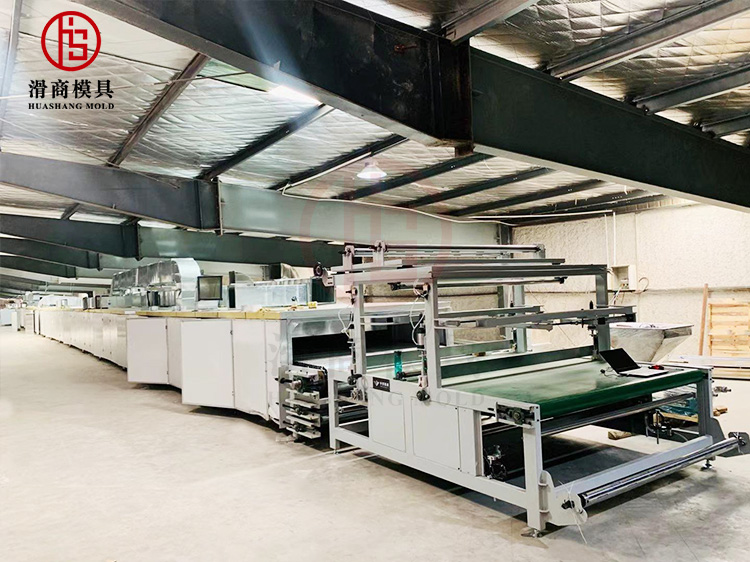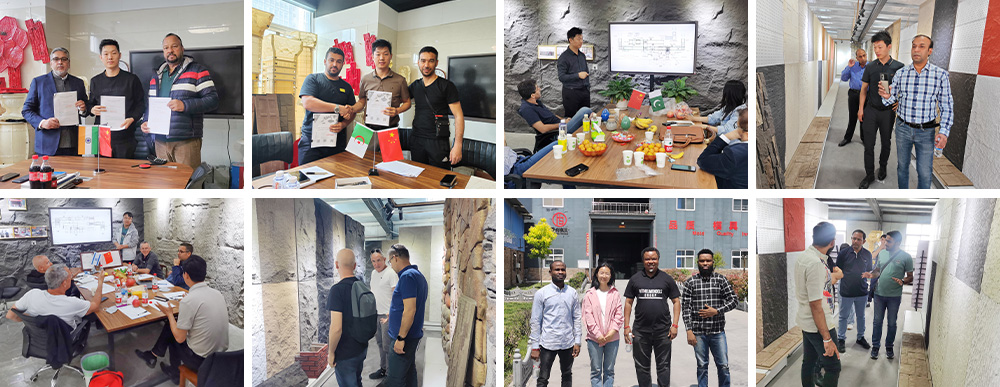Porcelain tiles are a versatile and popular choice for various residential and commercial applications due to their durability, water resistance, and aesthetic appeal. Here are some common areas where porcelain tiles are often used:

Flexible tiles are ultra-thin and flexible
Bathrooms:
Porcelain tiles are commonly used for bathroom floors, walls, showers, and backsplashes due to their water resistance and ease of maintenance.
Kitchens:
Porcelain tiles are popular for kitchen floors, countertops, and backsplashes because they are durable, stain-resistant, and come in a variety of styles to suit different design aesthetics.
Living Rooms:
Porcelain tiles can be used in living rooms to create a stylish and durable flooring option that can withstand heavy foot traffic and is easy to clean.
Entryways and Hallways:
Porcelain tiles are ideal for entryways and hallways where durability and resistance to wear and tear are important.

Moulds for producing flexible ceramic tiles
Porcelain tiles designed for outdoor use are commonly used for patios, decks, pool surrounds, and outdoor kitchens due to their durability and ability to withstand exposure to the elements.
Commercial Applications:
Retail Spaces:
Porcelain tiles are often used in retail settings for flooring and walls due to their durability, easy maintenance, and ability to create a visually appealing environment.
Restaurants and Cafes:
Porcelain tiles are popular in restaurants and cafes for their durability, stain resistance, and ability to create a hygienic and attractive space.
Hotels and Resorts:
Porcelain tiles are commonly used in hotels and resorts for flooring in lobbies, hallways, bathrooms, and outdoor areas due to their durability and aesthetic versatility.
Offices:
Porcelain tiles are a popular choice for office spaces due to their durability, ease of maintenance, and ability to create a professional and stylish environment.
Healthcare Facilities:
Porcelain tiles are used in healthcare settings for their hygienic properties, ease of cleaning, and ability to withstand heavy foot traffic.
Other Applications:
Educational Institutions:
Porcelain tiles are used in schools, colleges, and universities for flooring in classrooms, hallways, and common areas due to their durability and ease of maintenance.
Public Spaces:
Porcelain tiles are often used in public buildings, museums, libraries, and transportation hubs for their durability, aesthetic appeal, and ease of maintenance.
Porcelain tiles are versatile and can be used in a wide range of applications due to their durability, water resistance, and design flexibility. Whether in residential or commercial settings, porcelain tiles offer a practical and stylish solution for various spaces.

Complete production line for flexible tiles
Porcelain tiles are a popular choice for floors, walls, and other surfaces due to their durability, water resistance, and aesthetic appeal. Proper maintenance is essential to preserve the appearance and longevity of porcelain tiles. Here are some maintenance tips for porcelain tiles:
Regular Cleaning:
Sweep or Vacuum: Regularly sweep or vacuum the surface to remove dust, dirt, and debris that can scratch the tiles.
Mop with Mild Detergent: Clean the tiles with a mop or soft cloth dampened with a mild detergent solution and warm water. Avoid using harsh chemicals that can damage the tiles.
Grout Cleaning: Keep the grout lines clean by using a grout cleaner or a mixture of baking soda and water to remove stains and mildew buildup.
Stain Removal:
Immediate Cleanup: Wipe up spills immediately to prevent stains from setting into the tiles. Use a mild detergent or a pH-neutral cleaner for stubborn stains.
Avoid Harsh Cleaners: Do not use abrasive cleaners, bleach, ammonia, or acidic substances on porcelain tiles, as they can damage the surface.
Maintenance:
Sealing: Porcelain tiles are non-porous and do not require sealing. However, if the grout lines are porous, consider applying a grout sealer to protect them from staining.
Regular Inspection: Periodically inspect the tiles for any cracks, chips, or damage. Repair or replace damaged tiles to prevent further issues.
Protective Measures: Use furniture pads under heavy furniture to prevent scratching the tiles. Place mats or rugs in high-traffic areas to reduce wear and tear.

Source manufacturers help you solve production problems
Outdoor Tiles: If using porcelain tiles outdoors, ensure they are rated for outdoor use and follow manufacturer recommendations for maintenance in outdoor environments.
High-Traffic Areas: In areas with heavy foot traffic, consider using a doormat to trap dirt and prevent it from scratching the tiles.
Professional Cleaning: Periodically consider professional cleaning and sealing of porcelain tiles to maintain their appearance and longevity, especially in high-traffic or commercial settings.
By following these maintenance tips and incorporating regular cleaning and care into your routine, you can keep your porcelain tiles looking their best for years to come. Proper maintenance helps preserve the beauty and integrity of porcelain tiles, ensuring that they continue to enhance the aesthetics of your space while withstanding the rigors of daily use.